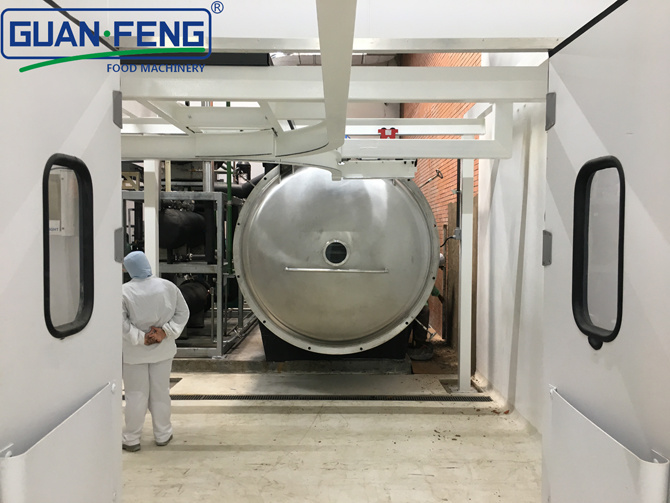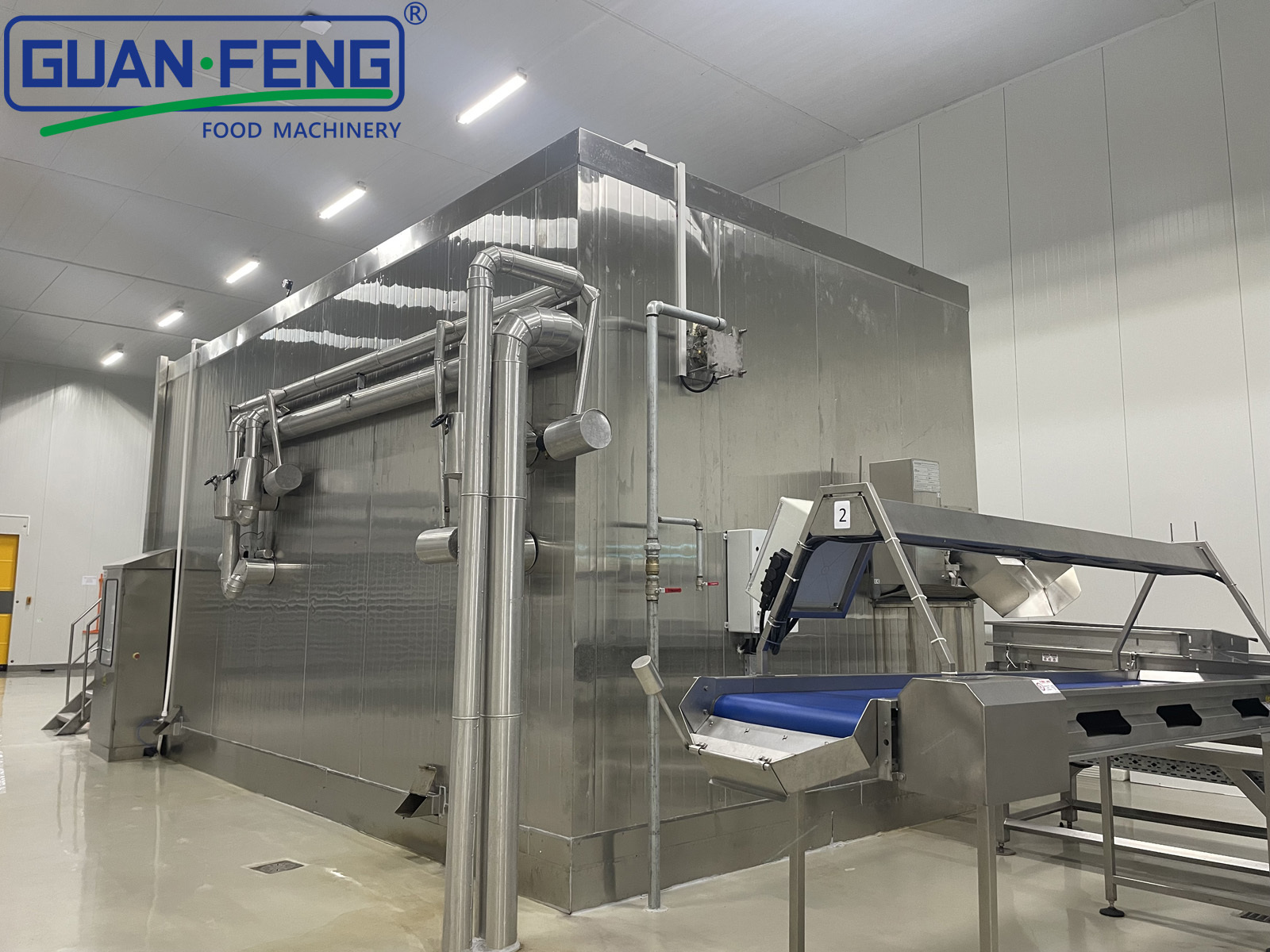BLOG
Focus on hot topics, real-time dynamics
Laboratory Freeze Drying: Transforming Biological Samples for Optimal Results
Laboratory Freeze Drying: Transforming Biological Samples for Optimal Results
Table of Contents
- 1. Introduction to Freeze Drying
- 2. What is Freeze Drying?
- 3. Principles of Freeze Drying
- 4. Benefits of Freeze Drying for Biological Samples
- 5. Applications of Freeze Drying in Life Sciences
- 6. The Freeze Drying Process Explained
- 7. Choosing the Right Freeze Dryer for Your Laboratory
- 8. Common Issues in Freeze Drying and Solutions
- 9. FAQs about Laboratory Freeze Drying
- 10. Conclusion
1. Introduction to Freeze Drying
In the realm of **life sciences**, preserving biological samples is paramount. Traditional preservation methods often compromise the integrity of sensitive materials. Enter **freeze drying**, a technique that not only preserves but enhances the usability of biological samples. This guide delves into the intricacies of freeze drying and its transformative power in laboratory settings.
2. What is Freeze Drying?
Freeze drying, or lyophilization, is a method used to remove moisture from a sample while preserving its structural and functional integrity. This process involves freezing the sample, followed by reducing the surrounding pressure to allow sublimation—the transition of water from solid to vapor without passing through a liquid phase. This results in a dry product that can be easily reconstituted when needed.
Understanding the Science Behind Freeze Drying
The process of freeze drying fundamentally relies on the principles of **thermodynamics** and **phase transitions**. By carefully controlling temperature and pressure, scientists can ensure that the biological material maintains its original properties, making freeze dried samples ideal for research and analysis.
3. Principles of Freeze Drying
To fully grasp the benefits of freeze drying, it's crucial to understand its operational principles. The freeze drying process can be divided into three primary stages:
3.1 Freezing Stage
The first step involves cooling the sample to a temperature where the water content freezes. This solid state is essential for the subsequent drying process, as it affects how moisture is removed.
3.2 Primary Drying Stage
During this phase, the pressure is lowered, and heat is applied, allowing frozen water to sublimate. This stage typically accounts for about 90-95% of moisture removal.
3.3 Secondary Drying Stage
In this final stage, any remaining bound moisture is eliminated, further enhancing the stability of the sample. This is achieved at higher temperatures and lower pressures.
4. Benefits of Freeze Drying for Biological Samples
The advantages of freeze drying biological samples are manifold:
4.1 Preservation of Structural Integrity
Freeze drying maintains the **cellular structure** of biological materials, allowing for accurate analysis upon rehydration.
4.2 Enhanced Stability
The removal of moisture significantly reduces the risk of degradation, making freeze dried samples stable for extended periods.
4.3 Improved Storage and Transport
Freeze dried products are lightweight and require no refrigeration, facilitating easier transportation and storage.
4.4 Versatility in Applications
From pharmaceuticals to food science, the applications of freeze dried materials are broad, catering to various research fields.
5. Applications of Freeze Drying in Life Sciences
In the life sciences sector, freeze drying is instrumental in several applications:
5.1 Pharmaceutical Development
In drug formulation, freeze drying helps in preserving the efficacy of active pharmaceutical ingredients (APIs) while ensuring their stability.
5.2 Biological Sample Preservation
For biobanks and research laboratories, freeze drying biological samples like tissues, cells, and proteins ensures they remain viable for future studies.
5.3 Vaccine Stability
Freeze drying vaccines enhances their stability, reducing the need for cold chain logistics and improving accessibility in remote areas.
5.4 Food Preservation
In the food industry, freeze drying is used to retain the nutritional quality, flavor, and texture of food products, making them suitable for long-term storage.
6. The Freeze Drying Process Explained
The freeze drying process can be intricate, yet understanding its workflow is essential for achieving optimal results.
6.1 Sample Preparation
Proper preparation of the sample is fundamental. This may include **pH adjustments**, concentration optimization, and the use of cryoprotectants to safeguard against damage during freezing.
6.2 Equipment Setup
Selecting the right freeze dryer is crucial. Key features to consider include the cooling capacity, vacuum pump efficiency, and control systems that enable precise monitoring of temperature and pressure.
6.3 Monitoring the Process
Throughout the freeze drying process, continuous monitoring ensures that conditions remain optimal for sublimation. Adjustments may be necessary based on the specific characteristics of the material being dried.
7. Choosing the Right Freeze Dryer for Your Laboratory
Selecting an appropriate freeze dryer involves evaluating several factors:
7.1 Scale of Operation
Determine whether you need a bench-top model for small-scale applications or a larger unit for industrial purposes.
7.2 Temperature Range
Different samples require specific temperature ranges for effective freeze drying. Ensure the equipment can accommodate your sample's needs.
7.3 Automation Features
Consider models with automation capabilities that enhance reproducibility and ease of use.
8. Common Issues in Freeze Drying and Solutions
While freeze drying is a powerful technique, it is not without challenges. Here are common issues and their solutions:
8.1 Incomplete Drying
If samples are not fully dried, it can compromise their stability. Regular calibration of equipment and monitoring of process parameters can mitigate this issue.
8.2 Caking of Dried Material
Sometimes, freeze dried materials may clump together. Incorporating excipients or using optimized drying protocols can help prevent caking.
8.3 Loss of Activity in Biological Samples
To avoid degradation of sensitive materials, utilize cryoprotectants and maintain optimal freeze drying parameters throughout the process.
9. FAQs about Laboratory Freeze Drying
9.1 What types of samples can be freeze dried?
Virtually any biological sample can be freeze dried, including proteins, cells, tissues, and even entire vaccines.
9.2 How long can freeze dried samples be stored?
Freeze dried samples can be stored for several years, provided they are kept in a cool, dry environment away from light.
9.3 Does freeze drying affect the biological activity of samples?
When done correctly, freeze drying preserves biological activity, although certain samples may require specific protective measures.
9.4 Can freeze dried samples be reconstituted easily?
Yes, freeze dried samples can typically be reconstituted by adding the appropriate solvent, often with minimal impact on their original properties.
9.5 What are the costs associated with freeze drying?
Costs vary depending on the scale of the operation, the type of freeze dryer, and the specific materials being processed. However, the long-term benefits often outweigh initial investments.
10. Conclusion
Laboratory freeze drying is a revolutionary technique that transforms biological samples, ensuring their viability for various applications. Its benefits, ranging from preservation of structural integrity to enhanced stability and versatility, make it an invaluable tool in the life sciences field. By understanding the principles and optimizing processes, researchers can unlock new potentials in their work, leading to greater outcomes in study and experimentation. Embrace the future of sample preservation with freeze drying and witness the remarkable transformation of your biological materials.
Hot Tags:
Contact Us
E-mail:
sales@syguanfeng.com
Tel:
+86 15088506234
Address:
South Industrial Park of Dongguan, Shangyu District, Shaoxing City,Zhejiang Province,China.
GUANFENG, your customization experts!
GUANFENG FOOD MACHINERY - leading supplier of integrated food processing solutions
Copyright© 2024 ZHEJIANG GUANFENG FOOD MACHINERY CO.,LTD.










